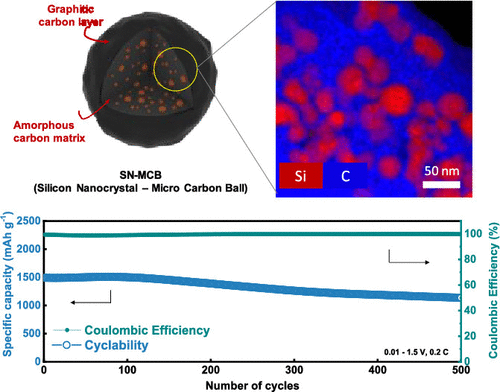In recent years, electric vehicle batteries have made great progress, but their energy storage capacity is limited, so many people have not given up on cars that use gasoline. However, this situation may change because scientists have developed a new anode material that is said to increase the capacity by as much as four times. The battery contains two electrodes-anode and cathode-ions propagating between electrolytes. Among other things, the capacity of the battery is affected by the number of electrons that can accumulate in the anode. Generally, those anodes are made of graphite. According to scientists from the Korea Institute of Science and Technology (KIST), silicon has 10 times the energy storage capacity of graphite, but silicon has a major disadvantage as an anode material-silicon expands during charging / discharging, causing its surface to crack, Its capacity has therefore declined sharply. Although attempts have been made to produce stable silicon anodes, the cost and complexity of the technologies involved generally make them commercially impractical. KIST's new technology is different. Dr. Hun-Gi Jung and colleagues first dissolved sweet potato-derived starch in water and silicon in corn-derived oil, and then mixed and heated the two solutions. The result is a carbon-silicon composite material in which tiny carbon spheres prevent the silicon from swelling. It is reported that when tested, the storage capacity of anodes made of composite materials was found to be four times that of graphite anodes, but they remained stable during 500 charge / discharge cycles. In addition, batteries using new anodes can be fully charged to 80% of their full capacity in just five minutes. Jung said: "The simple method we use and the composite material we developed with excellent properties are very likely to be commercialized and mass-produced. The composite material can be applied to lithium-ion batteries in electric vehicles and energy storage systems." Scientists described the study in a paper recently published in the journal Nano Express. Ebic Tools Limited , https://www.ebictools.com